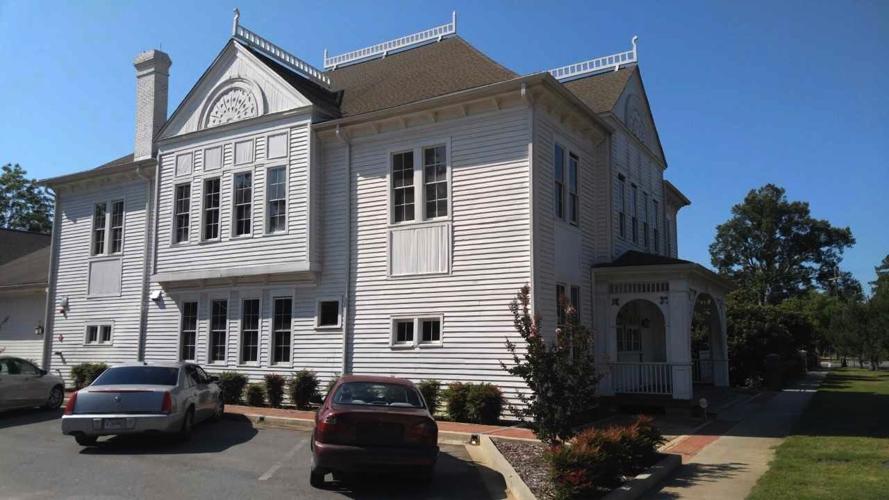Church and school have long been staples of the African American experience. The power of prayer and the power of education link members of the community, especially since the initially hopeful days of the Reconstruction.
It is, therefore, fitting that Aiken’s new Center for African American History, Arts, and Culture should be housed in an historic building whose construction was motivated by both faith and scholarship.
In 1882, the Reverend William R. Coles arrived in our fair city at the behest of the Presbyterian Board of Missions for Freedmen. His twin goals were to spread the articles of his denomination and to find a school for the education of members of the African American community.
Like Booker T. Washington, who founded what is now Tuskegee University in the same year, Coles believed in education as the means of developing the knowledge and practical skills that make economic independence possible. According to Washington, Coles, and Martha Schofield – she established her own freedman’s school in Aiken in 1868 with the help of her Quaker brethren and the AME Church – true freedom comes from the ability to chart one’s own financial destiny.
In 1889, Coles was able to leave the six-room rented house that he first used for his school and construct, instead, his own purpose-built facility on the corner of York and Richland. The building, christened the Immanuel Institute, has been called one of the finest examples in our state of what is labeled Victorian vernacular architecture. In other words, the overall design does not reflect the work of architects with formal training; instead, it is the creation of local craftsmen, most assuredly of African American heritage, working within the framework of their own imagination.
The school continued under Coles’s care for nearly twenty years. In 1911, the Reverend James Jackson assumed responsibility for its operation until the financial crisis of the Great Depression forced the National Missions Board of the Presbyterian Church to close its facility in Aiken in 1934. Since that time the building has served multiple purposes – a theater, a thrift shop, an auto parts dealership – before a group of concerned citizens in 2004 purchased the site with the plan of converting it into a cultural center.
Subsequent grants paid for refurbishment of the front façade to mirror its distinctive late-Victorian appearance. According to Jo-Anne Saunders, the center’s dynamic director, the restoration of the building’s exterior has brought the structure full circle, bringing it back to its nineteenth-century beginnings to serve once again as a focal point for education and inspiration.
Plans are now afoot for the installation of permanent exhibits, some already designed and constructed, that will take visitors “from Africa to Aiken.” When all interior work is done, one will enter the building’s main entrance on York Street and proceed to a gathering space to view a short video on the history of the center and its place in the community. From there, visitors will enter nine exhibit galleries, starting with a West African village and ending with Aiken County. Along the way, there will be interactive displays, such as the Middle Passage gallery, which will replicate the dark hold of a slave ship wherein visitors can hear the replicated voices of crew members and captives, including Olaudah Equiano, whose narrative of enslavement was published in 1789.
In addition to permanent displays on the African American experience, the building will include space for temporary exhibitions and workstations for genealogical and historical research on the first floor and an auditorium on the second floor.
Until the time that the interior is complete, the center’s board of directors has been busy hosting a number of special events at the facility. One of the most significant such offerings is coming up in 2018 when Aiken hosts the annual statewide humanities festival. From April 12 to 14 of next year, free programs –lectures, readings, special tours– will take place at over a dozen locations throughout town. The Center for African American History, Art, and Culture, in particular, will be hosting a reading and talk by award-winning novelist and Aiken native Pam Durban. Her presentation will begin at 1 p.m. on April 14; and from 10 that morning to 12, there will be, at the Center, a special viewing of an exhibition of art inspired by Durban’s Aiken-based novel “The Tree of Forgetfulness.”
For information regarding membership in the Center, visit www.aikenculturalcenter.org. Donations are also gladly accepted.
For information on the statewide humanities festival to be held in Aiken next April, visit www.Facebook.com/2018SCHF/.
Dr. Tom Mack is a recipient of the Governor’s Award in the Humanities and holds the rank of USC Distinguished Professor Emeritus. Of his five books to date, three are focused on local cultural history: “Circling the Savannah,” “Hidden History of Aiken County,” and “Hidden History of Augusta.”




